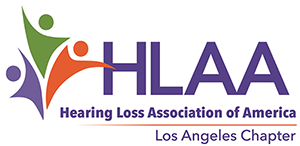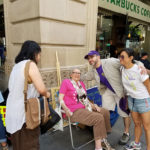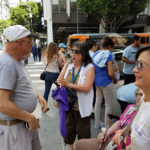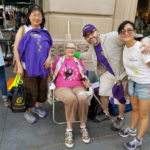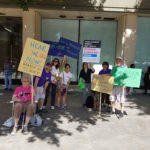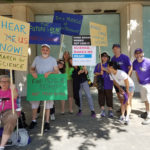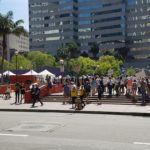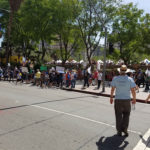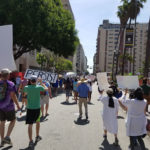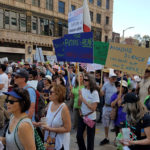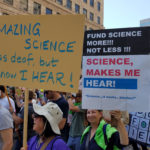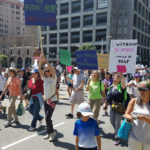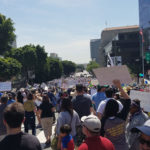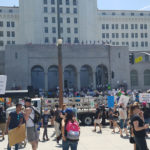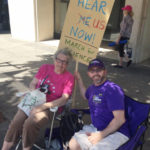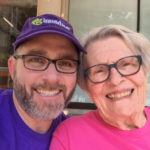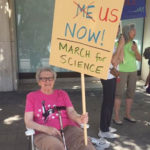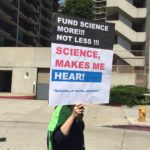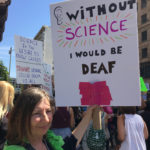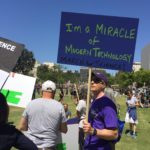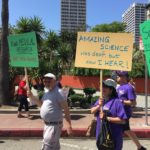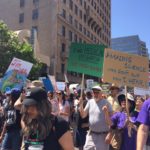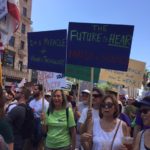Chapter Members Join the March for Science!
HLAA-LA members joined thousands of other March for Science attendees in downtown Los Angeles on Saturday, April 22, 2017, to show support for a cause that touches the lives of everyone with hearing loss. As President Heather Lehr explained, our goal was not to march against anyone or anything, but rather to show our support for government-supported research, while spreading awareness about hearing loss and hearing loss technology.
About ten HLAA-LA members met at Pershing Square downtown as large crowds prepared to march towards City Hall. Even 98-year-old Grace Tiessen took part, watching marchers from the sidelines, while holding a sign that said “Hear Us Now!”
Our goal? To show that science related to hearing healthcare matters, perhaps now more than ever before. According to a March 2017 study published by JAMA Otolaryngology-Head & Neck Surgery, the number of adults with hearing loss is expected to increase from 15% of the population, or 44 million, in 2020 to 23%, or 74 million, in 2060. Currently, more than two thirds of older adults aged 70 and over have a clinically meaningful hearing loss.
Untreated hearing loss has been independently linked to dementia, depression, anxiety, poorer physical health and even an increased risk of mortality. Many researchers view hearing loss as a major public health issue, an epidemic that will impact increasing numbers of people as the aging population continues to grow. We need scientists, researchers and technology experts to help target ways to improve the health and quality of lives of the millions of people affected by hearing loss.
Acknowledging what science has already done for people with hearing loss was another motivating factor for HLAA-LA members attending the March. The majority of our members rely on hearing aids or cochlear implants, or both, to help them hear and understand speech. Many also use some form of hearing assistive technology, such as audio induction loops and captioned telephones. Simply being able to email and text has opened up a world of communication for people with hearing loss that would not otherwise be possible. Without the advances of science and technology, the world would be a much smaller and more challenging place for so many of us. By taking part in the March for Science, we wanted to show our support to the scientists who have made it possible, and continue to make it possible, for people with hearing loss to remain productive, functioning, and engaged members of their families, workplaces and communities.
(Story by Lisa Yuan)
- Getting organized
- Getting organized at our meet-up location
- Getting ready for our march – where are the donuts?
- Full gang before the march
- Another group shot
- Start of the march
- On our way to join (survive) the march!
- Middle of the march
- Mitzi, Lisa Beth, Puay, Michael and Chloe display their signs with pride!
- Puay and Chloe signs!
- Another shot during the march
- A lot of people!
- End of the march at City Hall
- Ken & Grace enjoying the shade
- Ken and Amazing Grace
- Grace doing her part!
- Chloe’s other side of her sign.
- Chloe’s sign!
- Some guy holding a sign…
- Puay and Michael
- Puay and Michael
- Mitzi and Lisa Beth doing their part!
